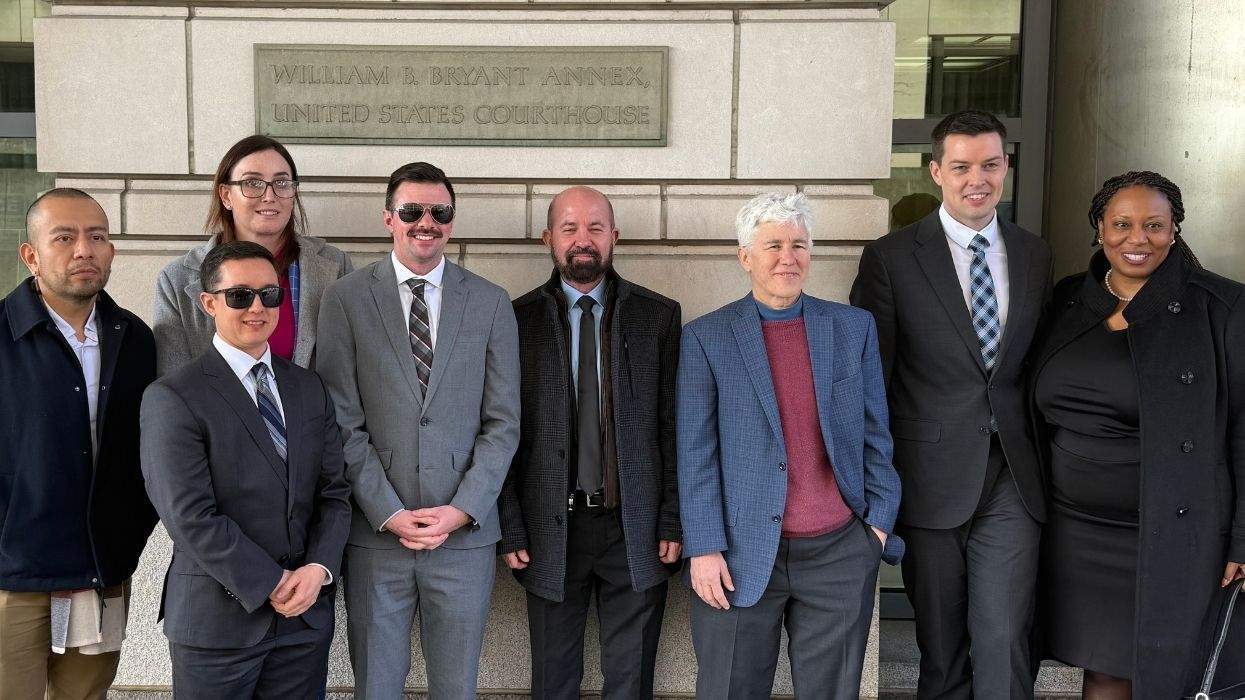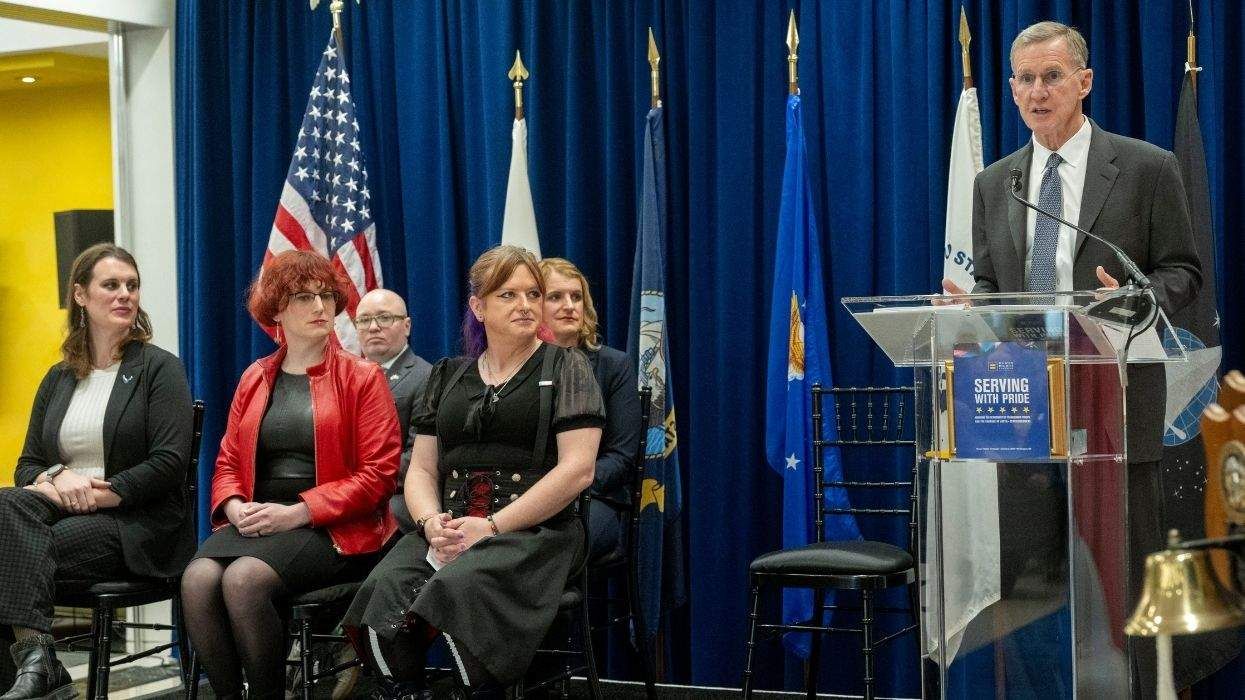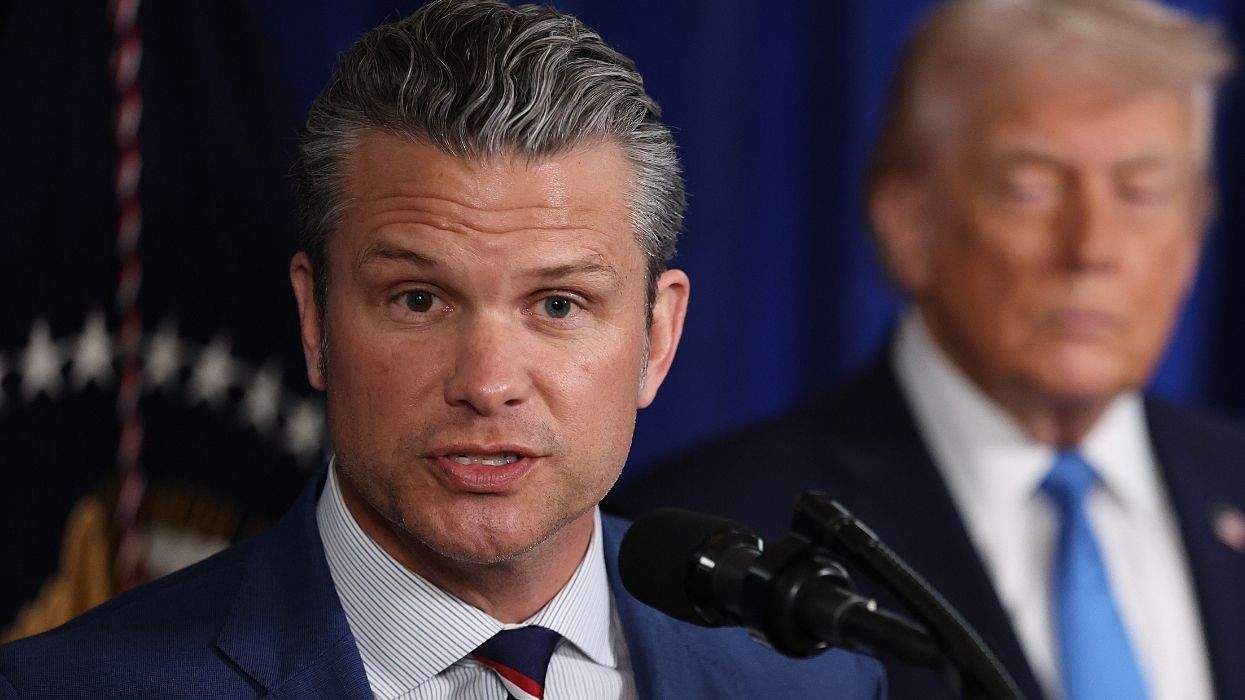The Trump administration apparently planned to stick with its transgender military ban no matter what a panel of experts said, according to a new analysis by ThinkProgress.
ThinkProgress's review of documents released through the discovery process in lawsuits against the ban "finds a massive disconnect between what was discussed in the meetings [of the panel] and what was ultimately recommended, reinforcing concerns that the process was rigged from the beginning -- in favor of a ban," the site reports.
Donald Trump announced the ban via Twitter last July, reversing a policy instated by President Barack Obama's administration, which allowed trans troops to serve openly, without fear of discharge due to their identity, and was to soon allow out transgender people to enlist. A month later, Trump asked the secretaries of Defense and Homeland Security to convene a panel of military experts to develop a "study and implementation plan" on banning military service by transgender people, to be delivered in February. The plan, made public in March, was essentially the same ban Trump tweeted, barring trans people from military service with very few exceptions. Right-wing groups and Vice President Mike Pence may have made the final call to affirm the ban, and Robert Wilkie, the undersecretary of Defense who led the process developing the plan, may have been a major influence as well.
Much of the information in the documents viewed by ThinkProgress has been redacted, but what remains reveals nothing that would justify the ban, the site reports. The documents, which include agendas for all 13 of the panel's meetings, minutes from five of the meetings, and some supplementary information, also indicate some panel members favored allowing trans troops to serve, while others appeared confused about what it means to be transgender and how transitioning would affect a service member's ability to be deployed in combat.
At the first meeting, October 13, the bulk of panelists seemed to believe that transition procedures would make service members nondeployable for two years or more, but "it's unclear where they came up with these estimates," ThinkProgress reports. A study by the RAND Corp. "that informed the decision to lift the ban on trans service under President Obama rejected concerns that hormone therapy would have any impact on deployability and measured impacts from various surgeries in weeks -- not years," the site reports. "It's possible that unrealistic estimates offered by conservative groups to justify the ban had shaped their thinking."
Also, several transgender soldiers told the panel that their transition-related health care did not interfere with deployability or create problems in their units. For instance, Army Staff Sgt. Patricia King, interviewed by ThinkProgress, said she explained to the panel that she managed all her surgeries so she had to miss only three weeks of work, as she scheduled some of the procedures over Thanksgiving and Christmas breaks. She and Navy Lt. Cmdr. Blake Dremann both told ThinkProgress they saw no major reservations on the part of the panelists about service by trans people.
"I didn't get a sense that anyone took away that [letting transgender people serve] was a horrible idea," Dremann told the site. King added, "They wanted to know how trans service was being received and if they got it right. That's how I walked away from it. They were leaders dedicated to their service members."
"We were as surprised by what was said in the [final] recommendations, as a lot of other people were, because that was not our experience talking to the panel members," Dremann said. "They seemed to realize that we had not caused any problems with the units or with our medical care." Medical experts who spoke to the panel also favored letting trans people serve.
But Pence and far-right activists, including Tony Perkins of the Family Research Council and Ryan T. Anderson of the Heritage Foundation, may have overruled any findings by the military panel, ThinkProgress reports. "Despite rumors that the military panel and [Defense Secretary James] Mattis himself favored allowing transgender people to serve, it was Pence's recommendation to ban service, sources claim, that 'effectively overruled' the panel's work. Indeed, the final recommendations directly mirror the anti-transgender talking points those conservative groups regularly use."
Also, Robert Wilkie, undersecretary of Defense for personnel and readiness, who led the panel beginning in December, supported the trans ban, unlike U.S. Sen. Thom Tillis of North Carolina, who led it before Wilkie's confirmation to the undersecretary position. Although Tillis is a conservative Republican, he opposed the ban.
"On January 11, Wilkie issued an action memo to Mattis with recommendations to reinstate the ban that mirror what Mattis later recommended to Trump," ThinkProgress reports. These included the recommendation that transgender people be allowed to serve in their "biological sex" -- basically, if they give up any hope of transitioning. As LGBT activists told The Advocate in March, what Marris recommended and Trump OK'd was the same ban announced previously, just dressed up with an attempt at justification by Marris.
The ban remains on hold while the lawsuits against it make their way through federal courts.















Charlie Kirk DID say stoning gay people was the 'perfect law' — and these other heinous quotes
These are some of his worst comments about LGBTQ+ people made by Charlie Kirk.